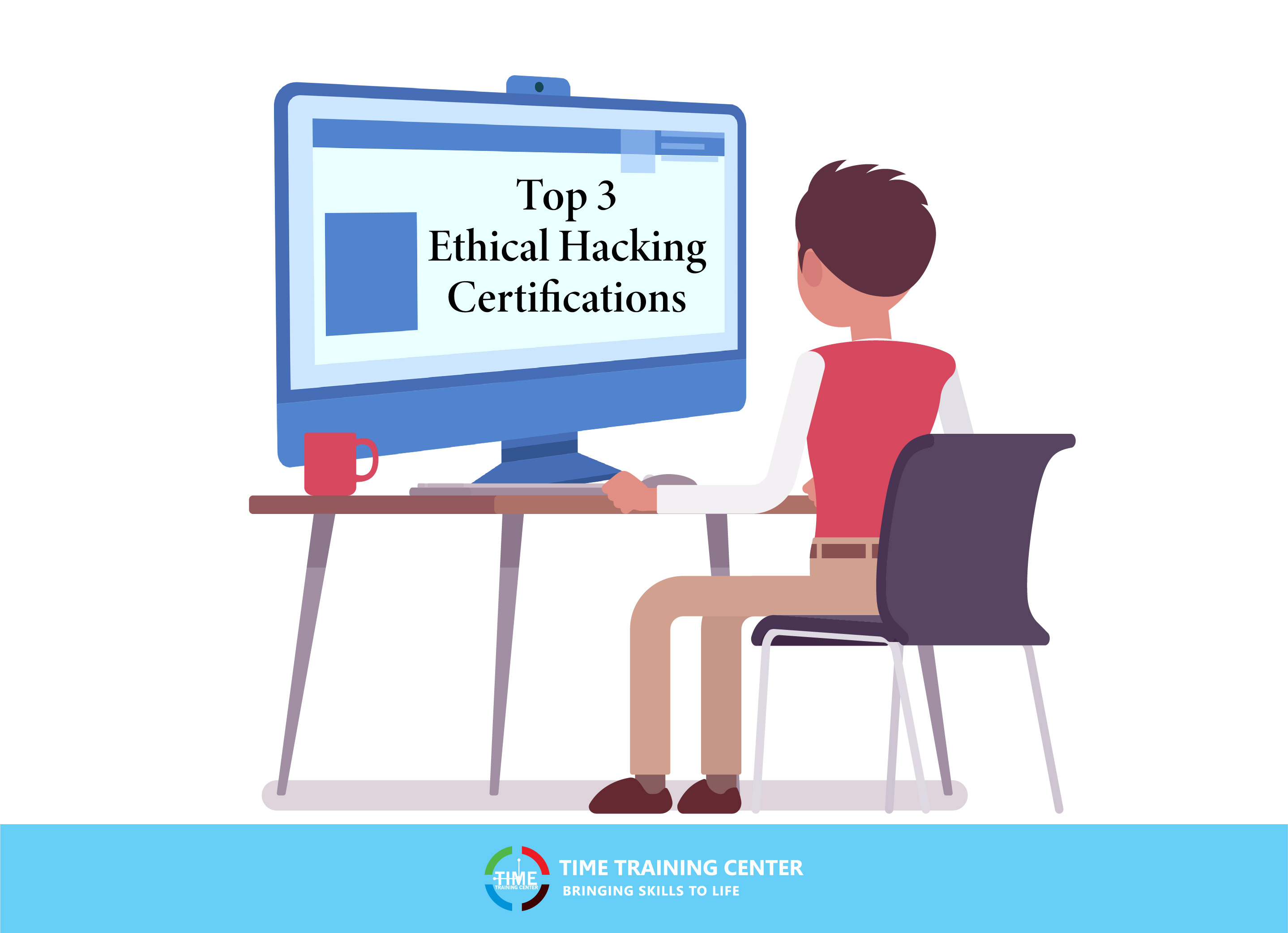An estimate of 56% and an increasing number of data breaches in a year brings in the need for ethical hackers. Many of you may wonder if ethical hacking is legal or not. Ethical hacking is the process of penetrating a company’s network or software to find its security flaws and vulnerabilities, intending to fix them, and secure the system. With adequate training and certification, ethical hacking is legal.
Ethical hackers or white hat hackers are security professionals who use the methods used by black hat hackers to penetrate the system or network and identify vulnerabilities. Black hat hackers are anyone who infiltrates a company system illegally, intending to exploit its security flaws for malicious ends.
What is the need for Ethical Hackers?
In the dawn of international conflicts and the rising rate of cybercriminals, organizations face the challenge of updating hacking-preventive measures and installing technologies before falling victim. Ethical hackers today are in great demand, and it exceeds the supply.
Companies and governments turn to ethical hackers to strengthen security by finding the flaws before black hat hackers find them. They also provide services like the recovery of data and documents that might have encountered breaches. The companies need ethical hackers to:
-
Identify and give remedy for security vulnerabilities
-
Help provide quality assurance in software development
-
Assess a company’s security and regulatory measures
As you see, companies need ethical hackers more than ever, so to be considered for a job as an ethical hacker, proper certification is necessary. As an ethical hacker, these certifications ensure that you know the technical skills and understand the job’s responsibility. Since not many employers have the expertise in this field to evaluate the candidate, they use certifications as a base qualification.
Top 3 Ethical Hacking Certifications
The certification brings a clearer picture of the ethical responsibilities and the vulnerabilities that risk the organization’s system. There are many certification options, and given below are the top three ethical hacking certifications.
1. Certified Ethical Hacker
The Certified Ethical Hacker (CEH) is the most commonly used certification. It is used by the EC-Council (International Council of Electronic Commerce Consultants), making it the baseline knowledge for cybersecurity professionals. CEH assesses your computer security knowledge by looking for weak spots and vulnerabilities on the target network and using the same knowledge and tools as a malicious hacker lawfully and legitimately.
The course provides instructor-led training, video lectures, forums, and hands-on lab experience. However, CEH has been under much infamous criticism, owing to its focus on theoretical studies more than hands-on lab experience.
2. Global Information Assurance Certification Penetration Tester
The Global Information Assurance Certification Penetration Tester (GIAC) is brought forth by the SANS Institution. It validates the ethical hacker’s penetration abilities using the best techniques and methodologies. Some characteristics of GIAC are:
-
It covers in-depth knowledge of scanning and exploitation, password attacks, scoping, and web pen-testing.
-
GIAC offers a broad range of compatible and vendor-neutral certifications that require hands-on labs.
-
It provides the practitioner with online courses.
-
It is one of the comprehensive certification courses that cover a good balance of theoretical knowledge as well as hands-on training.
-
It demonstrates the professional ability to take the job due to the pragmatic nature of training.
The SANS courses have a strong reputation in the field, connecting with over 20 certification courses to extend with GIAC. It is closely associated with secure administration, audit, forensics, and management topics. With this wide range of certifications provided by GIAC, the large number makes it difficult for any one of the certifications to be recognized. Employers find it difficult to make a connection with the required expertise with the certification.
3. Offensive Security Certified Professional
The Offensive Security Certified Professional (OSCP) is a difficult level of ethical hacking certification provided by Offensive Security.OSCP teaches penetration testing methodologies, with the use of Kali Linux distribution tools.
OSCP is a completely hands-on certification program, requiring the students to prove that they not only understand the concepts but also put them to work in a pressured environment. It is considered more technical than any other ethical hacking certifications.
What do you require to take OSCP?
Regarding taking up the OSCP course, you are required to take up the Penetration Testing with Kali (PWK) course. Thorough knowledge of networking protocols, software development, system internals, and an open-source project maintained by Offensive Security is required before taking up PWK.
How long is the OSCP exam?
For the exam, you will be given 24 hours straight to hack into multiple systems in a lab environment and another 24 hours to write up and submit a report on your findings. Even if it is notoriously difficult and a lengthy exam, lasting for about 24 hours, it is well worth the effort for ethical hackers to become senior-level cybersecurity penetration testers.
OSCP doesn’t appear to be quite famous around general hiring managers, whereas it is highly respected and known within the true penetration testing circles. A plus side of it is that there is no expiration date for the OSCP certification. You will have a professional career in positions like penetration testers, cybersecurity consultants, system auditors, advanced security professionals.
What is the scope for Ethical Hacking?
The scope of ethical hacking is high and constantly growing, as there is a constant increase in the number of malicious attacks on servers and networks. Industries like banking, information technology, government-operated companies, all are highly dependent on ethical hackers to protect their data and documents.
They help these companies find their vulnerability and possible security leaks of their network or system and also protect them from any potential threat. Ethical hacking is completely legal with the right certifications. It is one of the highest-paid and fastest-growing professions in the information technology field today.
Conclusion
Ethical hacking certifications help you understand and validate the ethical responsibilities of a white hat hacker. Companies with their own network or system, allow the cybersecurity professionals to perform activities under contract, to test the system’s defenses. By doing so, they can improve their security to withstand any potential threats.
Ethical hackers require learning and understanding the mindset and techniques of black hat hackers, to identify and correct the vulnerabilities within the network. With the great demand and less supply of ethical hackers, there is a large scope with attractive salaries. With malicious hackers finding alternative ways to breach the defenses, it has created an abundance of opportunities for cybersecurity professionals. As long as there are malicious attacks on company networks or systems, the need for ethical hackers will continue to grow.
 +971 2 6713828
+971 2 6713828




